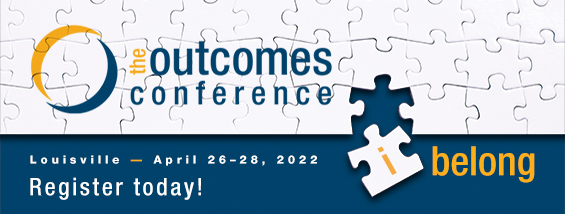
Stewarding Power and Privilege By Andrea Leigh Capuyan

Understanding the Stewardship of Power & Privilege
Power and privilege in the life of a leader must be understood and scrutinized if we wish to steward goodness and beauty in our relationships, organizations, and society.
As I reflect on current events, I am struck by how easily we are blind to the harm we perpetuate. There can be selfish, demanding attitudes that fortify our resistance to God’s rule. I believe understanding these attitudes are of utmost importance in the face of current leadership challenges. If we operate from ignorance, it is to our detriment.
Power
Becoming a steward leader does not relieve us of responsibility. It makes clear what is under our control. It defines our boundaries and limitations. A steward leader does have power and influence. These are gifts and the steward is appointed by God to leverage their power responsibly and humbly.
There are dangers. We can adopt a fatalistic attitude, denying our influence in another person’s life. Humility does not equal inaction. “Let go and let God,” does not reflect the wise stewarding of power and decision-making. False humility is perhaps rooted in a fear that denies our impact on events and people. It is deceiving because, amid good circumstances, we might wish to claim, “that’s not me – that’s God,” thinking that we are appropriately giving God glory – not centering attention on us. Yet, when everything goes wrong, are we, like Adam, blaming God? Passivity is not humility or godly. As stewards, we are meant to join Him in His work. Actively working – powerful agents – acutely aware of God’s ultimate authority.
Stewarding power begins with a recognition that we are actors in God’s story. Our choices matter – to Him, to us, to others. And He created us to take meaningful action in life. That is part of the essential nature of stewardship – we are given the power to act and should act. Sadly, in times of uncertainty or wrong-doing, we often follow Adam and Eve’s example and hide. Withdrawal does not absolve us of critical decision-making and action.
Faithful stewards do not throw their power away. Faithful stewards understand how they act powerfully in life. They recognize the good they cultivate and they confront the harm they cause. They understand how others experience their authority. Are they open and inviting? Do they empower others? This is the nature of stewarding godly power. Faithful stewards act with conscious action. They embrace authority and humility.
Privilege
For me, it is far more comfortable to talk about power than to discuss privilege. I think it is because I often fail to view privilege from the perspective of a steward. Stewardship is about orientation, and that orientation is – God owns everything. We have no rights or claims to privilege.
Stewards cannot act from a ‘better than’ mentality. Whether we are naively acting as a rescuer or oppressively acting as a micro-manager, if we operate with a ‘controlling interest’ in the lives of others we are usurping God’s role. Privileged actions, attitudes, and beliefs block us from aligning with God’s ‘controlling interest’ in our life. It can be a deceptive area of resistance to God because hidden underneath our thoughts of – ‘what do I think I am owed?’ – is an ownership mentality.
A steward identity encompasses a view of my whole life and my whole history. My past is honestly examined so I can better understand my present thoughts and action, rather than stay stuck. This path invites God to change me. Self-examination reveals what I take for granted or perhaps a blind spot.
My gender, role, class, ethnicity, race, legacy, these pieces of me are not to be minimized or ignored. These pieces matter in my interactions. These pieces mold my real-world experiences. These pieces are an important part of who I am. They are a gift to be welcomed, understood, and shared – not to be possessed. Like power, we can abuse these gifts. Any possessive or privileged belief left unconfessed leads to selfish and self-protective behavior. We cut ourselves off from others. Privileged beliefs undermine God’s design that we are made to act in communion with others.
Stewarding relationships WITH others, building community, requires honest vulnerability – exposure of our weaknesses and needs. We recognize each one of us has a need and each one of us has a contribution. Stewards build systems, organizations, and communities which actively work for the best interest of others. This is not martyrdom – it is interdependency on one another. It is not minimization, stewarding relationships well invites us to courageously acknowledge our sin and actively seek to correct our wrong actions. We create communities with empowering helping relationships – listening and learning about another person’s needs.
Stewards live in the calling of 2 Corinthians 5:17 – 21, chosen as ambassadors of reconciliation. Stewards are new creatures, inhabitants of a new kingdom. Stewards are God’s agents of justice, mercy, and selflessness in their relationships – reflecting His kingdom values. An essential piece of the Gospel is the death of our entitlement and God resurrecting renewal. This is not the absence of who we were, rather it is the restoration of God’s design, making all of our unique pieces more beautiful. This begins with a posture of humility before God – releasing our privilege.
An Invitation
- Ask others in your life about how they experience you – where do they see you defensive and guarded? When do they experience you as open and inviting?
- Journal about any attitudes you might have that make you think you are “better than” or “less than” other people. What do you think others owe you? What do you think God owes you? Who is helping you release those demands?
- What do you think about power? How are you stewarding your power and influence?
- Where are fear, blame, or inaction keeping you stuck? Where are you fostering growth and flourishing?
- What do you need today – from God and others? What can you give today?
- How are you creating a community of justice and mercy?
####
Andrea Leigh Capuyan is the Executive Director of Laurel Pregnancy Center. Andrea holds a Master’s degree in Organizational Leadership from York College. She is a Credentialed Christian Nonprofit Leader with Christian Leadership Alliance and a Certified Nonprofit Accounting Professional.
This is the place and the event where a leader like you Belongs!

Early registration is now through January 31!
Alliance organizations that register 4 at one time – earn a 5th registration free!

What is Christian Leadership Alliance?
Christian Leadership Alliance equips and unites leaders to transform the world for Christ. We are the leaders of Christ-centered organizations who are dedicated to faithful stewardship for greater kingdom impact.
Sign up for FREE blog updates.
Upcoming Events
Check back later!



